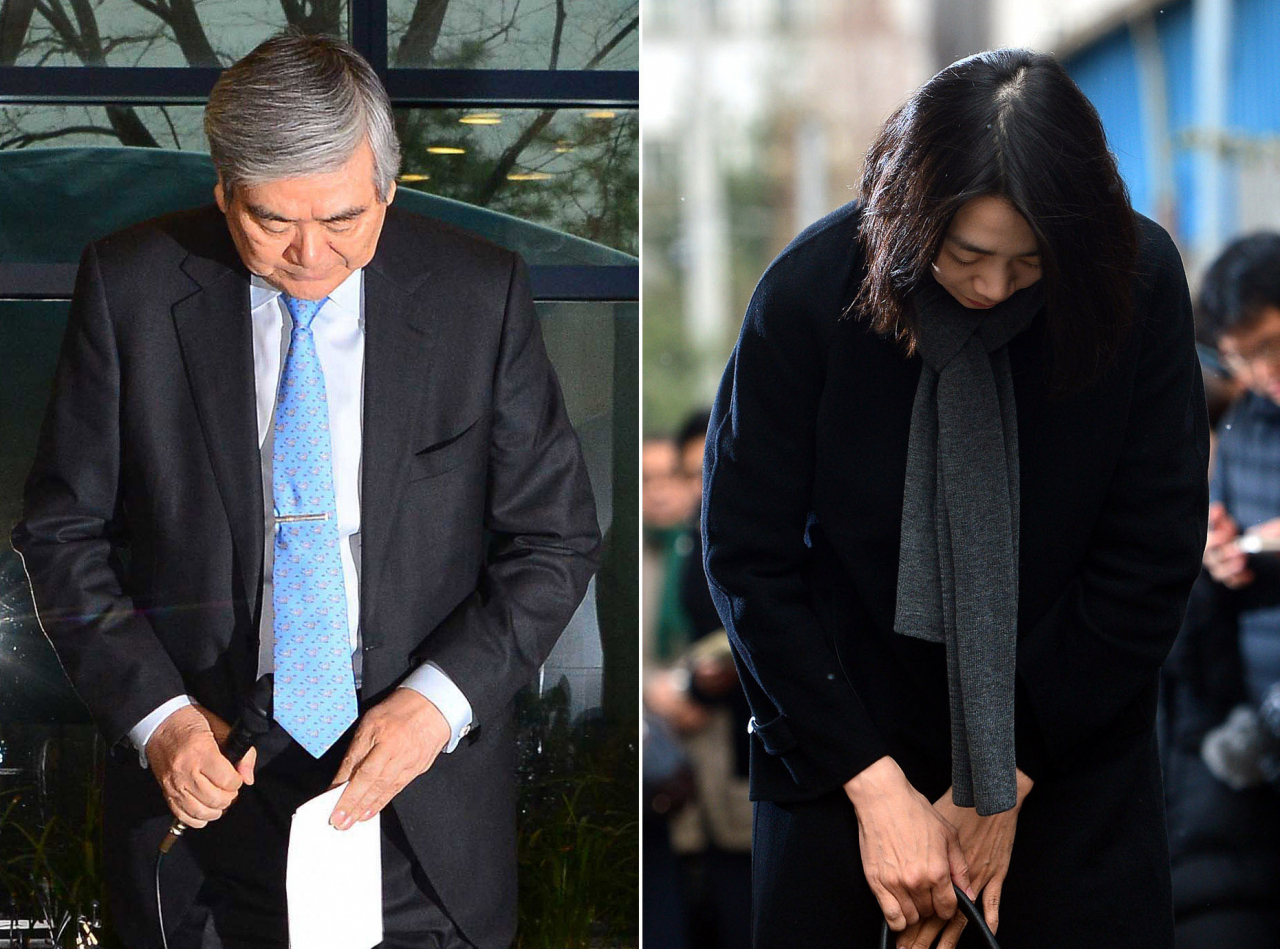[AtoZ into Korean mind] Battling 'gapjil': The quest to tame the tyrants among us
Korea in transitional state towards restoring balance in relationships across nearly every facet of society
By No Kyung-minPublished : April 7, 2024 - 14:27

In many social relationships, whether personal or at work, power dynamics can create problematic imbalances.
There are many words to describe them -- unjust, abusive, coercive, exploitative — but in Korean, there's a term that encapsulates them all: "gapjil."
Originating from contractual terminology, the term came to be used for abuses of power in the workplace. Its use has expanded to other social relations, when individuals who, rightly or wrongly, perceive themselves to be in a superior position.
Examples include an obstinate customer berating service staff, overprotective parents harassing their child’s teacher, and an apartment complex resident admonishing security guards for a perceived lack of respect.
Workplace abuse and beyond
Gapjil, however, is most commonly used to highlight toxic workplace behavior.
There is even a civic group dedicated to eradicating workplace abuse, named Workplace Gabjil 119. A survey run by the group last year found that 15.3 percent of South Korean workers had experienced either physical or verbal abuse at work -- in other words, had been subject to gapjil.
Kim Joo-hyun, in her 30s, said she has experienced instances of gapjil to varying degrees throughout her career. For her, gapjil encompasses not only overt verbal and physical abuse, but a wide range of situations that she perceived as unjust.
"A few years back, on a Friday afternoon, my superior tasked me with completing a project by Monday, essentially requiring me to work over the weekend despite the project not falling within my responsibilities," she said.
Gapjil has its roots in legal terminology. “Gap” denotes the more powerful, "superior" party in a contract, while the party in the relatively less powerful, "inferior" position is referred to as “eul.” The suffix “jil” means actions or behavior, but has negative connotations.

The term was popularized by the infamous "nut rage" incident in 2014, involving the heiress of Korea's flag carrier, Korean Air.
Cho Hyun-ah, who has now changed her first name to Seung-yeon, who was vice president of Korean Air at the time, boarded a flight departing New York for Incheon and became infuriated over how macadamia nuts were served to her -- in a bag, not on a plate.
After verbally and physically assaulting a flight attendant, she fired them on the spot and demanded they get off the plane immediately.
The aircraft, which was preparing for takeoff, had to return to the boarding gate to allow the attendant to leave, even though such a move is only legal in cases of emergency. Her anger came even though the nuts were served in accordance with the airline's service manual.
The Korean Air incident highlighted the problem of excessive demands from overbearing bosses in Korea -- who have often acted like dictators.
Cultural psychologist Han Min explains that the concept of gapjil has expanded beyond contractual relationships to more subtle spheres of human interaction.
"Nowadays, individuals wielding abusive power often perceive themselves as superior to others, often based on highly subjective criteria," he noted, citing factors like wealth, social status, age and occupation as influential in the act's manifestation.
Service providers, for instance, often fall victim to gapjil by users with huge egos, he noted.
In May 2020, a security guard working at an apartment complex in Seoul took his own life after enduring continuous physical and verbal abuse from one of the tenants, who used to refer to him as a "servant."
Despite the subsequent revision of the Enforcement Decree of the Multi-family Housing Management Act in October of the following year, which aimed to prevent tenants from making unreasonable demands of security personnel, there appears to be only marginal improvement in their working conditions. A 2022 study conducted by Workplace Gabjil 119 one year later found that all nine short-term contracted apartment security personnel interviewed had faced some form of gapjil from residents.
Likewise, a 2021 study by the civic group revealed that the legal safeguards intended to protect call center employees from disrespectful callers, who resort to verbal abuse including profanity, remained ineffective despite being in place for three years. It revealed that nearly 7 out of 10 employees handling customer service hotlines continued to endure unfair treatment from customers who communicated with loud and aggressive tones and demanded expedited service.
Gapjil has also become a sensitive issue in schools.
In July last year, the suicide of a 24-year-old elementary school teacher in Seoul's affluent Seocho-gu brought to light gapjil issues faced by public school teachers dealing with parental complaints.
The incident triggered the rise of the teacher-led movement to protect teachers' rights, shedding light on a string of cases where school teachers faced verbal and physical abuse from parents and students.
In February this year, the teacher's death was officially recognized as having occurred while in the line of duty by the Ministry of Personnel Management. Starting in March, teachers now have the option to use the 1395 hotline to report instances of violations of their rights.
The widespread use of the term gapjil signals an increased awareness or sensitivity among people of situations that might not have been recognized as problematic before, if it had not emerged.
Kim noted that the concept of gapjil is increasingly being applied to romantic relationships.
"For example, in discussions with my close friends, we often talk about which partner holds the 'gap' position, exerting control or dominance, while the other, seeking love and attention, is referred to as 'eul,'" she said. "Even in preparations for marriage, the one with a prestigious occupation or wealthy family background is sometimes identified as 'gap'."
An office worker in his 30s, surnamed Oh, reflected that he may have been subjected to gapjil during his time as a driver soldier in the Korean military a decade ago.
"Seeing news reports about conscripted soldiers being tasked with personal errands of various kinds for higher-ranked officers," he recalled. "Perhaps, in today's terminology, I could say that I experienced gapjil."

Why wield it?
“A sense of entitlement,” Han explained, is the motive behind such dictatorial behavior.
In gapjil, he added, people try to solve a conflict by asserting dominance over those they believe to be their subordinate, and the latter is expected to concede.
According to Gong Jung-sik, a professor of forensic psychology at Kyonggi University, the development of hierarchy in society is connected to various factors, including those derived from the military and patriarchal culture. The core issue isn't hierarchy per se, but rather its exploitation in the wrong hands.
Gong stated that these practices have long constituted ingrained problems in Korean society, with efforts to address them starting only relatively recently.
"Those who exploit relationships lack empathy for others," he said. "This manipulative behavior, often reinforced by society's class hierarchies, must be addressed to encourage the respectful and humane treatment of others."
Chung Chan-seung, a psychiatrist and director of the social responsibility committee of the Korean Neuropsychiatric Association, questioned whether low moral standards allowed gapjil to become common: Are Koreans too tolerant of the poor behavior of those in power?
While emphasizing the need for education to ensure that everyone is respected regardless of their class, gender and wealth, he said domineering people often suffered from a sense of inferiority.
"A strong desire for social recognition and respect may manifest as violence," he noted.
Moreover, he cautioned against the cyclical nature of gapjil.
"Another serious concern is the potential for individuals exposed to authoritarian behavior to replicate similar actions when they assume a position of power in certain relationships,” he stressed.
But there are inverse manifestations of this toxic dynamic, known as "euljil," in which a subordinate exploits their vulnerability for personal gain. In comparison to gapjil, incidents of euljil are relatively infrequent.
Gong explained that Korean society is going through a transitional phase, giving rise to complex issues stemming from gapjil in various relationships.
He expressed optimism looking forward though, anticipating a decline in toxic workplace culture "with more and more younger generations entering the workforce."
Similarly, Han said Korean society is advancing toward greater stability and balance in relationships.
"A to Z into the Korean mind" traverses the complexities of the Korean psyche, examining an array of mental and emotional phenomena and their cultural nuances through keywords in alphabetical order. – Ed.









![[News Focus] Lee tells Yoon that he has governed without political dialogue](http://res.heraldm.com/phpwas/restmb_idxmake.php?idx=644&simg=/content/image/2024/04/29/20240429050696_0.jpg&u=20240429210658)









